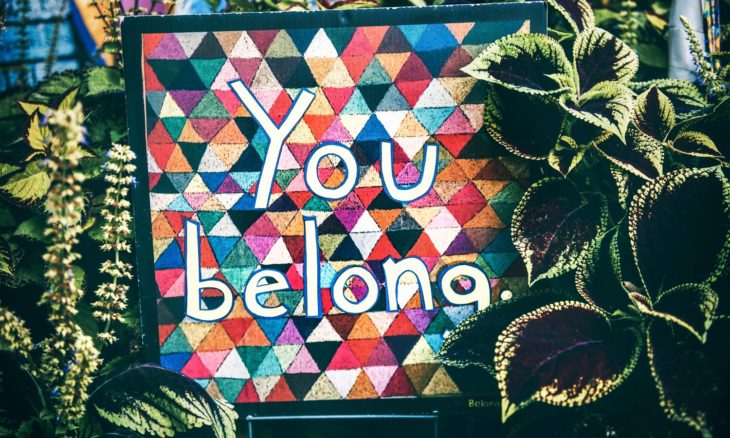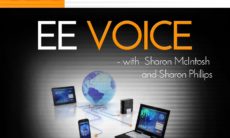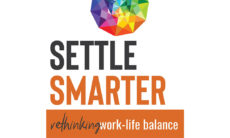This edition’s featured article, Knowledge @ Wharton’s How Middle Managers Can Help Make a More Equitable Workplace, highlights the findings of research conducted by Wharton scholars in their 2021 report titled “Improving Workplace Culture Through Evidence-based Diversity, Equity, and Inclusion Practices”. Leveraging survey and interview data across a range of US employees in 15 industries, “the report examines the complex relationship between DEI practices and outcomes, and it fills in the gaps with recommendations to help companies address their shortcomings.”
Insightful and actionable, the research and recommendations go beyond just identifying issues; the authors aim to provide concrete steps and processes organizations and managers can take “…to uncover implicit bias and ‘make visible the invisible’ at work.” Middle managers, in particular, have the opportunity, accountability and power to facilitate more diverse, equitable and inclusive workplaces. “…Discretion over policy, along with their close interaction with employees, gives them great power in dictating workplace culture.”
I am including a wide variety of additional diversity, equity and inclusion reading and listening perspectives. From recent research on closing the pay equity gap, the negative effect first impressions can have on women, insights on the workplace experiences of Black executives, the implications of gender equity on corporate talent retention efforts, to effective sponsorship/allyship for women and people of color, (and more), there is much to consider.
Articles
KelloggInsight: How Leaders Can Truly Improve Diversity, Equity, and Inclusion in Their Organizations. “In many organizations, efforts to be more diverse, equitable, and inclusive are falling short…The stakes for doing better are high—for society, and for the organizations, which face reputational risks and market risks if they cannot reach an increasingly diverse base of employees and customers.”
Harvard Business Review: 20% of White Employees Have Sponsors. Only 5% of Black Employees Do. “…Creating more access to sponsorship is not going to happen organically. Significant progress depends on companies giving urgent priority to well-financed interventions that create access to senior level advocacy for Black managers and executives.”
Harvard Business Review: Don’t Just Mentor Women and People of Color. Sponsor Them. “…Allies need to not only offer the emotional support of mentoring but also be intentional about identifying opportunities for sponsorship and using our social capital to lift up those who might otherwise go unnoticed. Sponsorship alone isn’t enough to address the deep-seated challenges associated with systemic racism, but it is a personal action that all of us can take to help make the world a more equitable place.”
Harvard Business Review: What Do Black Executives Really Want? “…Caring leadership gives Black employees what they say they need: managers who strive toward a system that makes everyone feel ‘safe, seen, and supported.’ In the end, this changes not just the dynamic with and outcomes for Black employees. It shifts the culture of the organization to cultivate the full potential of all employees.”
Harvard Business Review: “‘I’m Here Because I’m As Good As You.’ The HBR Interview with Ursula Burns [the former CEO of Xerox].”
Harvard Business Review: How to Close the Gender Gap. “…All of us—men and women, C-suite leaders and frontline supervisors—have a stake in fostering equality in the workplace. As a manager, you can enable women to deliver the results they are truly capable of, which will facilitate not only their success but yours as well.”
Harvard Business Review: How One Biotech Company Narrowed the Gender Gap in Its Top Ranks. “…Diversity is especially vital at Genentech; a broad variety of perspectives and skill sets enhances our ability to discover and develop medicines that treat patients with some of the world’s most serious diseases. To that end, attracting and retaining a diverse workforce and giving everyone the opportunity to advance to senior leadership positions is not just a moral and ethical imperative, it’s also a critical business priority.
Axios: Women’s Labor Force Participation Still Lagging. “Men’s labor force participation rate was up to 70% in January, according to numbers from the Labor Department released Friday. The women’s rate is 58%.”
Chicago Booth Review: How First Impressions Work against Women. “Our automatic assumptions are laden with gender bias.”
Forbes: A Push To Fix Pay Equity Has Focused On The Median Pay Gap. A New Report Says Doing So Created An Unfair ‘Glass Floor.’ “…The report analyzes the gender wage gap over the last 15 years, when the ranks of female executives have grown and focus has increased on measuring the pay gap. It finds that women are more likely than men to be paid in a tight range around median figures, and as a result, are not only underrepresented among the lowest paid executives, but much less likely to be paid at the top range, too. “
Forbes: Meet The World’s Top Female-Friendly Companies 2021. “Forbes has teamed up with market research company Statista to identify the companies leading the way when it comes to trying to support women inside and outside their workforces with our inaugural ranking of the World’s Top Female-Friendly Companies. The list was compiled by surveying 85,000 women in 40 countries. Respondents were asked to rate their employers on criteria such as pay equity and parental leave. Statista also asked women to assess how companies use their platforms and marketing messages: to promote gender equality or to perpetuate negative stereotypes? Representation at the executive and board levels were taken into account, too.”
Forbes: How Etsy Has Retained Its Female Software Engineers For The Past 10 Years. “Ten years ago, only 6% (three) of Etsy’s software engineers were female. Two years later, the company increased the percentage to 22%. Today, more than 30% of Etsy’s engineering team is female, almost double most industry benchmarks.”
Podcasts
TEDWomen 2021: 4 Ways To Redefine Power at Work To Include Women of Color. “With many women of color considering exiting the workforce due to unfair conditions, it’s time to reshape systems in order to put an end to this massive loss of talent. Exposing the harmful repercussions of racist, toxic organizational cultures, soul coach Rha Goddess and corporate inclusion visionary Deepa Purushothaman share four pathways to reimagine work so women of color are centered as leaders.”
Freakonomics Radio Network: No Stupid Questions. “Are Women Required To Be Nicer Than Men?“
Reboot Podcast: Tending the Garden of Democracy. “Amy McGrath is a retired US Marine Corps Lieutenant Colonel, the founder of Honor Bound – a 501(c)(4) nonpartisan organization committed to leadership development for women with a service background and encouraging those women to run for elected office.”
HBR: The Anxious Achiever: Neurodiversity at Work: A deeper look at the experiences of neurodiverse professionals at work. “By now, we know that the state of our minds – if we’re struggling, or if we are just wired differently – doesn’t have to be a hindrance to our career. In fact, it can actually be our strength. That’s incredibly true when it comes to neurodiversity.”
Autism Knows No Borders (The Global Autism Project): Why the World Needs All Kinds of Minds, with Dr. Temple Grandin. “Dr. Temple Grandin is well known for both her pioneer work as an autism advocate and her lifelong dedication to animal welfare. Through groundbreaking research aimed at understanding her own autistic mind, Dr. Grandin propelled the awareness of autism during a time when very little was known of it…In this conversation, Dr. Grandin explains how her ability to think in pictures helped her to empathize with animals in the early days of her career and why she thinks the world needs different brains to work together.”
TED The Way We Work: Want to truly succeed? Lift others up while you climb. “It’s up to all of us to create a more inclusive and diverse workplace. No matter where you are in your career journey, it’s essential that you help others grow, even as you are growing yourself, says ACLU Chief Equity Officer Amber Hikes.”
Arts, Music, Culture & Humor Corner
The New York Times Magazine: “Christopher Walken Shares the Secrets of Acting Like Christopher Walken.”
The Guardian: ‘We’re like Mork and Mindy!’ Robert Plant and Alison Krauss, music’s odd couple. “Fourteen years after their Grammy-winning debut, the roots duo have reunited – facing high expectations. They explain how they left their comfort zones with a ‘nuts but tasteful’ all-star band.”
The Atlantic: THREE RULES FOR MIDDLE-AGE HAPPINESS. “Gather friends and feed them, laugh in the face of calamity, and cut out all the things––people, jobs, body parts––that no longer serve you.”
The New Yorker: The Parent Trap. “I don’t want to scare you, but your unsupervised father could even be running for a Senate seat, with a thousand lawn signs that read ‘Commercials Are Too Loud!'”
Reflections
“How shall I live?
I want to feel both the beauty and the pain of the age we are living in. I want to survive my life without becoming numb. I want to speak and comprehend words of wounding without having these words become the landscape where I dwell. I want to possess a light touch that can elevate darkness to the realm of stars.
This vascular malformation could bleed and burst. Or I can simply go on living, appreciating my condition as a vulnerable human being in a vulnerable world, guided by the songs of birds. What is time, sacred time, but the acceleration of consciousness? There are so many ways to change the sentences we have been given.
We cannot do it alone. We do it alone.” — Terry Tempest Williams
“Our deepest fear is not that we are inadequate. Our deepest fear is that we are powerful beyond measure. It is our light, not our darkness that most frightens us. We ask ourselves, ‘Who am I to be brilliant, gorgeous, talented, fabulous?’ Actually, who are you not to be?…Your playing small does not serve the world. There is nothing enlightened about shrinking so that other people won’t feel insecure around you. We are all meant to shine, as children do…And as we let our own light shine, we unconsciously give other people permission to do the same. As we are liberated from our own fear, our presence automatically liberates others.” ― Marianne Williamson
This article was originally posted here.








